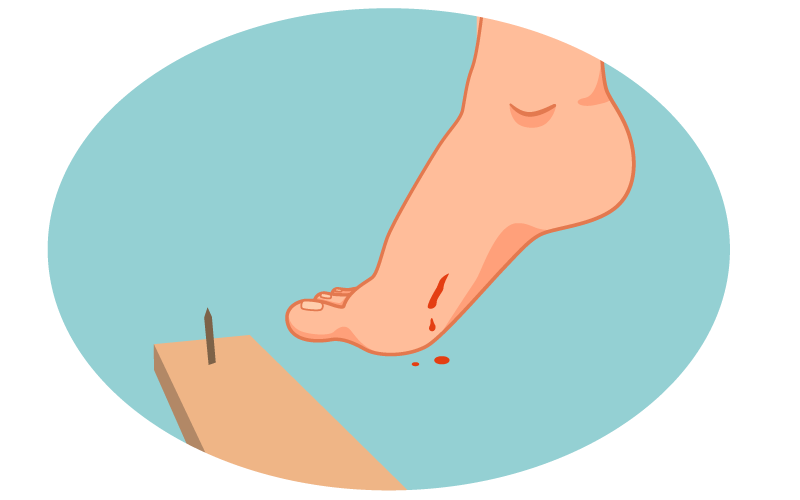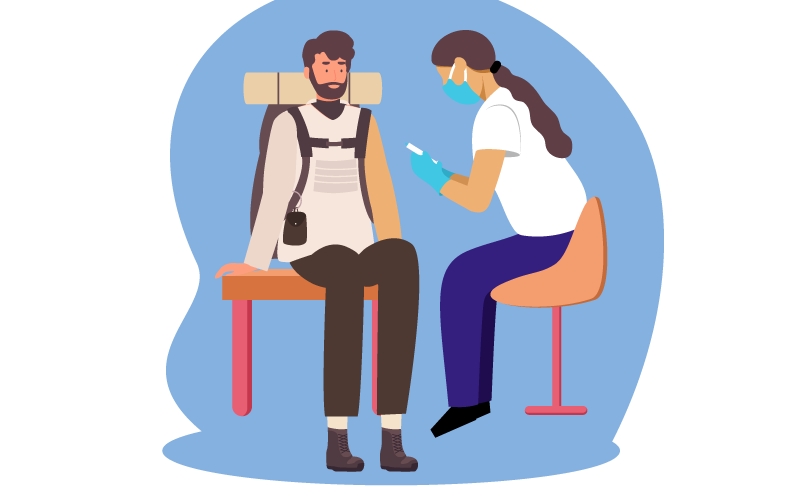Tetanus
What is tetanus?
Tetanus is a rare, life-threatening disease caused by toxins released by the bacterium Clostridium tetani.
People catch tetanus when bacteria in the natural environment get into a wound. Tetanus cannot spread from person to person.
Widespread vaccination means that very few cases of tetanus nowadays occur in the EU/EEA.
At a glance: Tetanus in Europe
- Disease that affects the nervous system caused by bacteria
- People become infected when tetanus bacteria in the environment enter an open wound
- Tetanus cannot spread from person to person
- Fewer than 100 cases every year
- Without prompt treatment, tetanus is fatal.
- Vaccination can prevent tetanus and its complications

What are the symptoms of tetanus?
The most recognisable tetanus symptom is a stiff jaw that makes it hard to open and close the mouth.
Other symptoms include:
- Muscle spasms
- Trouble swallowing
- Seizures
- Rapid heartbeat
- Breathing difficulties
- Fever
What are the complications of tetanus?
Tetanus can cause serious complications, mainly related to muscle spasms, such as:
- Inability to maintain breathing
- Heart failure
- Brain damage
- Pneumonia
- Airway obstruction
- Bone fractures
- Muscle damage
Left untreated, tetanus is life-threatening disease.

How is tetanus spread?
Tetanus is caused by ‘spores’ of the tetanus bacteria getting into the body through an open wound. These spores are like seeds, lying dormant in the soil, house dust and in animal dung. They can develop into live bacteria after entering the body.
Infection can happen following a cut or scrape to the skin on a dirty surface, or when a wounds gets dirty later. The deeper and dirtier a wound, the higher the risk of developing tetanus.
Tetanus cannot spread from person to person.
Who is at risk of tetanus?
Anyone can be infected and develop tetanus at any age. However, it is most common among people who were not fully vaccinated as children or who have not had the necessary booster vaccines. Workers who have continuous contact with the ground and rubbish must pay particular attention.
Most cases are seen in people over 60 years of age. This may be because their resistance has weakened over time, especially if they have not had a booster vaccine since childhood.

How can tetanus be prevented?
Vaccination is the most effective method of preventing tetanus. The tetanus vaccine is part of the childhood vaccination schedule in all EU/EEA member states, meaning most of the European population is protected against the disease.
The best way to prevent tetanus is to keep up-to-date with the recommended vaccines and boosters against the disease, as recommended in the local area.
Cleaning cuts and scrapes, keeping them clean and seeking prompt medical attention for serious wounds also help prevent tetanus.
How is tetanus treated?
Tetanus is a serious condition and requires intensive medical treatment if symptoms develop. Treatment generally includes:
- Medicines to neutralise the toxins produced by the bacteria
- Breathing support if required
- Surgery to clean the wound that resulted in the infection
- Antibiotics
- Bedrest in a dark, quiet environment
- Muscle relaxant
